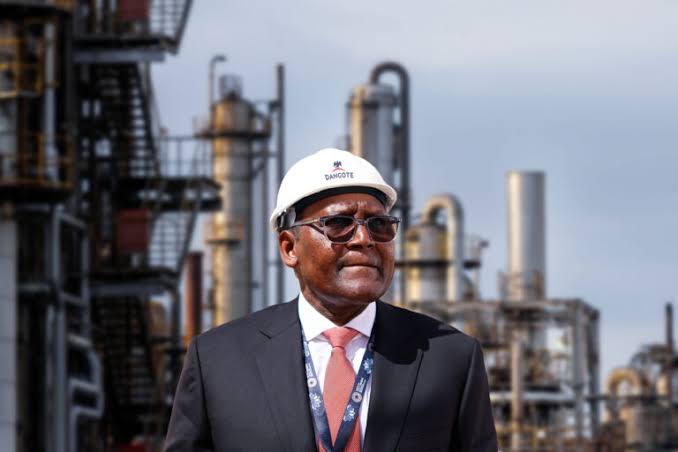Aliko Dangote, Africa’s richest man, has seen his wealth more than double to $28 billion following the long-awaited opening of his Nigerian oil refinery, according to the Bloomberg Billionaires Index.
The refinery, the world’s largest single-train facility, is capable of processing a broad range of global crude types and represents a monumental investment for Dangote, who has financed the $20 billion project largely through his own fortune.
The 67-year-old Nigerian industrialist now presides over one of Africa’s most ambitious private ventures, a refinery that promises to alter Nigeria’s energy landscape.
By producing refined petroleum products domestically, the facility could eliminate the country’s dependence on fuel imports, a reliance that has hamstrung its economy despite Nigeria being Africa’s largest crude oil producer.
Dangote acknowledged the challenges of the project, stating, “I didn’t know what we were building was a monster,” reflecting on the complexity of the project and the obstacles it has faced, including opposition from local communities and environmental concerns.
The project’s completion took over 11 years, far longer than initially planned, and cost more than three times its original budget.
The Dangote Refinery has already started making an impact, with Nigeria’s importation of premium motor spirit (PMS) dropping sharply in early October.
According to S&P Global Commodity Insights, Nigeria imported just 280,400 barrels of gasoline during the first week of October, a steep decline from the average 1.3 million barrels per week in August.
Market analysts attribute the decline to the Dangote Refinery’s increased output as it strives to replace imports with domestic supply.
However, energy analyst Akinola Adewale noted that while the refinery’s production is a positive step, it is still in the early stages, and the current output may only meet a fraction of Nigeria’s full demands.
Traders remain concerned about potential fuel shortages, and imports might still be necessary to bridge any shortfall, especially as demand surges in the near term.






































Leave a comment